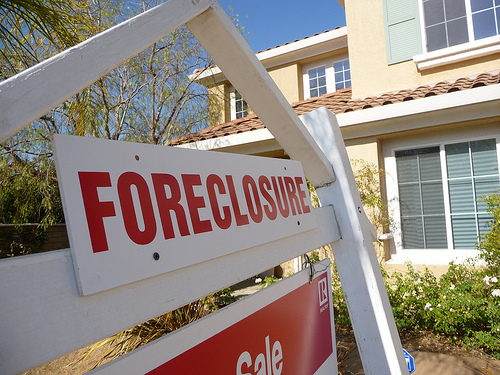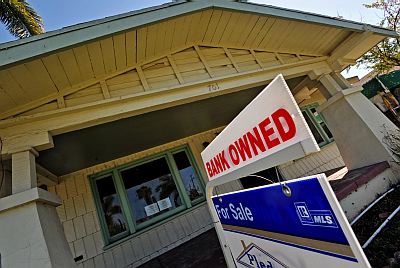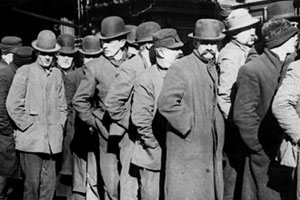
Flickr/respres
Amid the reams of polling data out there, most tracking the political horse race and foretelling Tuesday’s midterm election results, there’s really only one you need to read—and it doesn’t involve politics at all.
According to a new Washington Post poll, 53 percent of Americans surveyed said they were “very concerned” or “somewhat concerned” about being able to pay their next monthly mortgage bill. Not surprisingly, that especially applies to working class Americans; African Americans, too, disproportionately worried that they didn’t have the money for their house payments. By comparison, the Post notes, only 37 percent of those polled felt the same way two years ago, as the subprime bubble began to burst and Wall Street teetered on the brink. And against the backdrop of a national foreclosure crisis, with allegations of wrongdoing by mortgage companies swirling around and 50 state attorneys general probing Wall Street’s biggest mortgage companies, 52 percent of respondents said the Obama administration should impose a foreclosure moratorium, freezing the process until the paperwork shenanigans are fixed.
So there you have it. More than any political poll, the Post‘s survey shows just why anxiety and fear and anger are pervasive this election season. Yes, Americans are concerned about federal deficits; yes, they may worry President Obama is leading the country in the wrong direction; and yes, they may think Congress is doing a terrible job. But not being able to simply stay afloat—for many, mortgage payments are their biggest monthly expense—is much more immediate than those other concerns.
Despite slight improvements in the economy, more and more people are living paycheck to paycheck, stringing together a living during this non-recession recession of ours, with little or no cushion in case of emergencies financial, medical, and so on. That more than half of the country, as the Post poll suggests, fear can’t even pay their bills on time, and could face foreclosure if they fall behind, is as revealing a glimpse into the American psyche as you’re bound to find.
Here’s more from the Post:
Julie Wharton, 37, who works at a nonprofit agency for at-risk children in Florence, Ky., near Cincinnati, said she worries she will no longer be able to pay the mortgage on her three-bedroom ranch house if she loses her job and can’t find another one quickly.
“It’s always right there in the back of my mind,” Wharton said. “If I was out of work for any length of time, this is something that would happen to me.”
Worry is twice as high among those with household incomes of less than $30,000 as it is among those with annual incomes of $75,000 or more. Fully 75 percent of African Americans are concerned, including a majority, 55 percent, who are “very concerned.”













